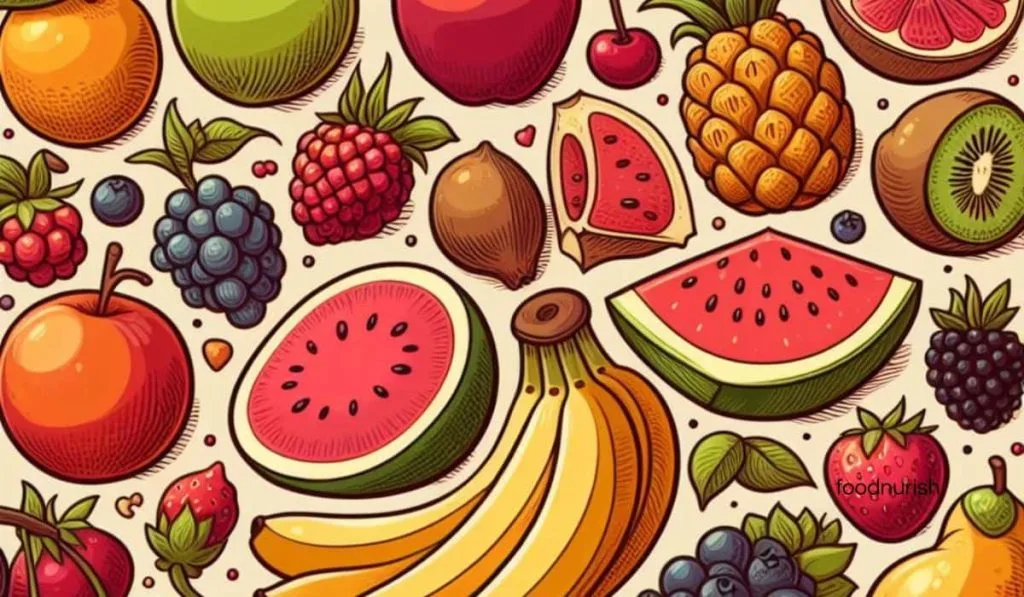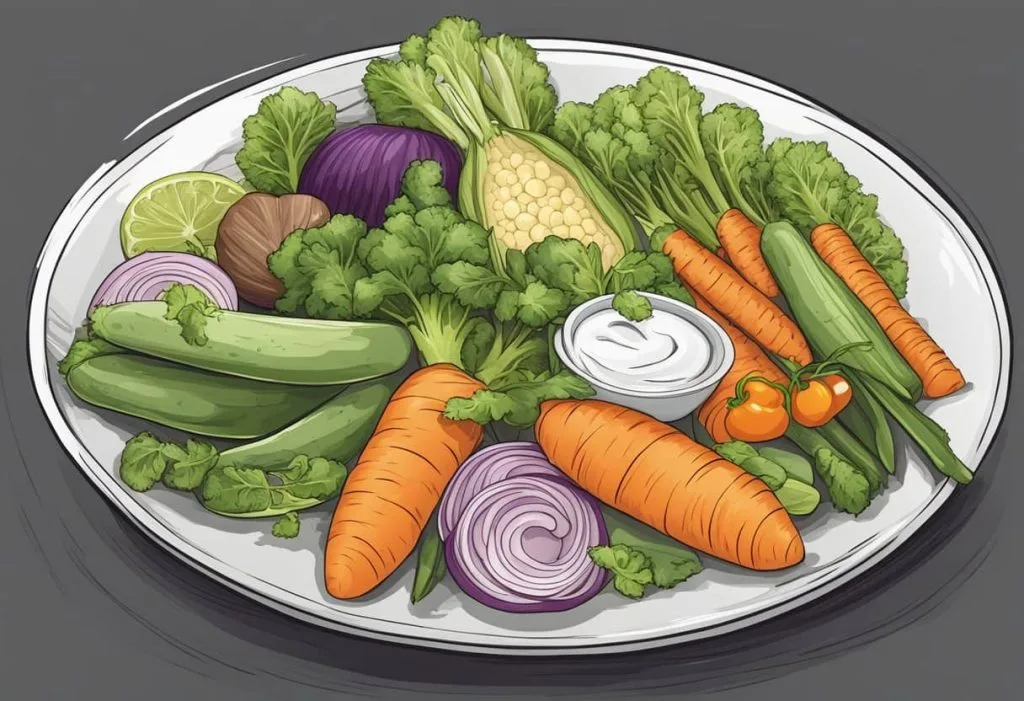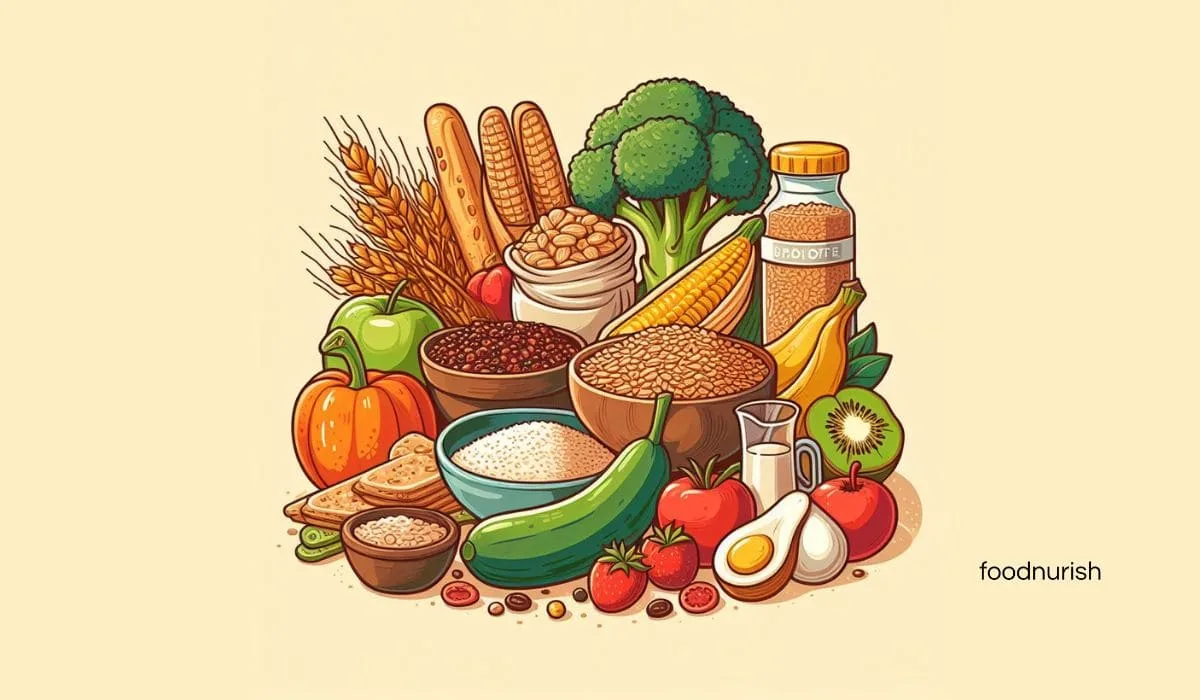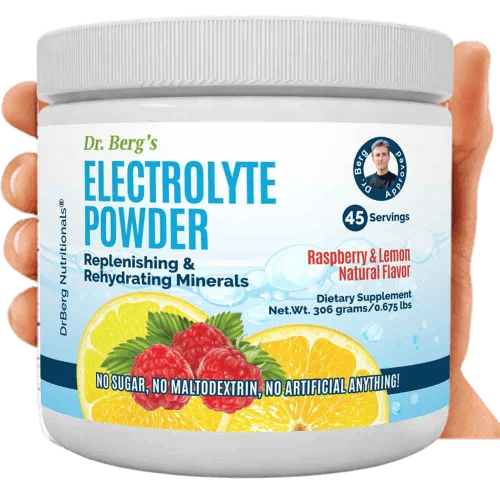What Are the Best Foods for Energy After Being Sick?

Feeling tired after being sick is common, and you’re probably wondering what foods can help you get your energy back.
Recovering can be tough, and your body needs good food to get strong again. It’s not just about eating healthy, but eating the right things.
Proteins, carbs, and healthy fats can help you recover faster. Drinking enough water is important too, it helps carry nutrients in your body.
We get it, and we’re here to help. This article will tell you about the 22 best foods for energy after being sick – foods that are full of nutrients and can speed up your recovery.
By the end, you’ll have a comprehensive list of foods to add to your diet, enabling you to bounce back to your energetic and healthy self in no time.
22 best foods for getting your energy back after being sick
Before you “dive in” the list of energy-boosting foods, here’s a quick table summarizing them, for your ease.
| Food Category | Description | Recommended Foods |
|---|---|---|
| Fruits | High in potassium; aids nutrient balance and reduces cramps | Bananas (high in potassium) Oranges (packed with Vitamin C) Applesauce (contains pectin for toxin binding) |
| Vegetables | Packed with vitamins, minerals, and fiber | Ginger (anti-inflammatory) Spinach (detoxifies, provides nutrients), Garlic (offers various health benefits), Sweet Potatoes (easy to digest) |
| Lean Proteins | Essential for tissue building and repair | Eggs Chicken Turkey Fish Tofu |
| Fiber-Rich Foods | Maintain digestive health, provide sustained energy | Wild Rice High-Fiber Toast Quinoa Buckwheat Oatmeal |
| Healthy Fats | Regulate blood sugar, provide sustained energy | Avocados Nuts Seeds Olive Oil Salmon (rich in omega-3 fatty acids) |
| Other Foods | Miscellaneous nutrient sources | Yogurt (probiotics for gut health) Honey (natural energy boost) Herbal Teas (ginger or peppermint for stomach hydration) Coconut Water (electrolyte balance) Smoothies (blend fruits, vegetables, yogurt, and protein powder) Broth-Based Soups (e.g., chicken or vegetable for hydration, nutrients) |
Fruits

When you’re recovering from being sick, incorporating nutrient-rich fruits into your diet can be a game-changer for regaining your energy.
1. Citrus fruits
Reaching for citrus fruits like oranges, grapefruits, and lemons can help kick-start your recovery by replenishing your body with vitamin C, a key nutrient for bolstering immune defense and aiding in collagen production.
These fruits aren’t only refreshing but also support your body’s healing process, ensuring a nutrient-dense approach to regaining your energy and strength after illness.
2. Bananas
Continuing with nature’s powerhouse offerings, bananas emerge as an excellent choice to replenish your energy post-illness, packed with essential potassium and vitamin C to balance nutrients and mitigate muscle cramps.
These attributes make bananas not only a convenient snack but also a wise addition to your recovery diet.
Check Also: 8 Powerful Reasons to Eat Two Bananas Daily for Better Health
3. Applesauce
Applesauce serves as a gentle yet effective option to restore your energy after illness. It offers the added benefit of pectin to aid in detoxification and alleviate digestive distress. [1]
This easily digestible food soothes your stomach, and its pectin content helps bind toxins, potentially reducing diarrhea. [2]
TIP: Opt for unsweetened varieties to avoid unnecessary sugars while reaping the wholesome benefits of this fruit-based energy source.
Vegetables

You’ll find that vegetables like ginger, spinach, garlic, and sweet potatoes aren’t just comforting but also key in replenishing your body post-illness. These foods are dense in essential nutrients that support immune function and energy restoration.
4. Ginger
Why not turn to ginger, a powerful vegetable known for its anti-inflammatory properties, to alleviate nausea and boost your immune function as you regain your strength after an illness?
Incorporating ginger into your diet can be both soothing and revitalizing. It’s packed with antioxidants, which are crucial for recovery and maintaining health.
5. Spinach
When recovering from an illness, adding spinach into your meals can replenish your body with vital vitamins, minerals, and fiber, aiding in detoxification and the restoration of your energy levels.
This leafy green is nutrient-dense, providing iron which is essential for oxygen transport in your blood [2] and vitamin C to support your immune system – all crucial for bouncing back to full health.
6. Garlic
Similar to spinach, garlic is another powerhouse vegetable that can significantly boost your recovery by providing a host of health benefits to reinvigorate your system after illness.
Packed with immune-supporting compounds like allicin, it’s been revered in herbal medicine for centuries.
Adding garlic into your meals can enhance flavor while fortifying your body’s defenses, helping you regain energy and return to full health more rapidly.
You might be interest in this Amazing Ginger-Garlic Soup Recipe to Reinforce Your Immune System
7. Sweet potatoes
Rich in complex carbohydrates and dietary fiber, sweet potatoes are an excellent food choice to replenish your energy reserves after being under the weather.
They’re packed with essential vitamins and are notably easy to digest, making them ideal for soothing an upset stomach.
Lean proteins

As you’re start regaining your strength after being sick, adding lean proteins like eggs and chicken into your diet can do wonders. These foods are packed with essential amino acids that support tissue repair and bolster your immune system.
8. Eggs
Eggs can boost your energy levels with their high-quality protein and ease of digestion. They’re a nutrient-dense choice, offering essential amino acids to rebuild tissues.
They also provide sustained energy, vital for your body’s healing process. Opt for eggs as a gentle yet powerful way to restore vitality after being under the weather.
Check Also: What Causes Differences in Egg Yolk Color and Its Significance?
9. Chicken
Chicken’s lean protein content is essential for tissue repair and it’s easy on your digestive system as well. It’s a nourishing choice that supports your body’s healing process without overwhelming it.
Opt for simple preparations like steamed or grilled chicken to maximize benefits and ease digestion as you regain your strength back.
Fiber-rich foods

After being sick, it’s important to nourish your body with fiber-rich foods to support your digestive health and regain your energy. These nutrient-dense choices not only fuel your body but also aid in stabilizing blood sugar levels, keeping you energized and focused throughout the day.
10. Whole Rice
Whole rice is rich in carbohydrate content and packed with fibers.
Whole rice, being unpeeled, retains fiber which aids in gentle digestion—a soothing choice for an unsettled stomach.
It’s an efficient way to replenish your body’s energy reserves, ensuring you’re getting essential nutrients while you regain your strength.
11. High-Fiber Toast
Just as whole rice can replenish your energy stores, opting for high-fiber toast (made from bread that is high in fiber content) is another smart choice when you’re on the mend. It provides essential carbohydrates and aids in digestive comfort.
High-fiber toast is often made from whole grain bread, which retains more nutrients compared to refined white bread.
It contains a higher amount of dietary fiber, which aids in digestion and promotes regular bowel movements. Fiber adds bulk to the stool, preventing constipation and promoting overall gut health .
It’s easily digestible and settles your stomach, making it a nutrient-dense option to regain strength.
12. Quinoa
Adding Quinoa into your meals can significantly boost your energy levels as this superfood is packed with fiber and high-quality protein, essential for recovery after illness.
It’s a complete protein, providing all nine essential amino acids your body can’t make on its own.
Plus, its complex carbohydrates offer sustained energy, helping you regain strength without causing drastic blood sugar spikes.
13. Buckwheat
Another powerhouse grain (or pseudo-grain to say best) to consider when regaining your vitality after sickness is buckwheat.
It is loaded with dietary fiber, magnesium, protein and other nutrients essential for restoring your energy levels. It’s not just filling; its high fiber content can help stabilize blood sugar levels, preventing energy spikes and crashes.
GOOD TO KNOW
Pseudo-grain are a group of seeds or grains (e.g quinoa, amaranth, buckwheat, and chia seeds) that are commonly used as grains but are technically not true grains. Pseudo-grains are typically gluten-free and rich in protein, fiber, and various vitamins and minerals.
14. Oatmeal
When recovering from illness, oatmeal serves as a comforting and nutritious choice. It is packed with carbohydrates, fiber, and essential vitamins to help restore your energy levels.
It’s also easy to digest and can soothe an upset stomach, making it an ideal food to ease back into regular eating.
Healthy Fats

As you recover from being sick, incorporating healthy fats into your meals can be a game-changer for regaining your strength. These nutrient-dense options offer a balance of vitamins and minerals that aid in your body’s recovery process.
15. Avocados
Rich in monounsaturated fats, avocados support your recovery by providing sustained energy and aiding in the reduction of inflammation after illness.
They’re packed with fiber and essential vitamins which are crucial for regaining strength. Avocados help boost your immune system, promoting a smoother transition back to health.
16. Nuts and seeds
Continuing with healthy fats for post-illness recovery, nuts and seeds offer a powerful combination of protein, fiber, and essential fatty acids. They’re proven to help rebuild your body’s energy reserves and support your immune system.
Including a variety of these in your diet can effectively reduce inflammation and bolster health as you bounce back from sickness.
17. Salmon
Salmon, packed with omega-3 fatty acids, offers a nutritious boost to help combat post-sickness fatigue and support your overall heart health.
Including this fish in your diet can aid in reducing inflammation, often a concern after illness.
TIP: Opt for grilled or baked salmon to retain its heart-healthy benefits without adding unhealthy fats, ensuring a balanced approach to regaining your strength and energy.
Other Foods
Beyond the staples of fruits, veggies, and lean proteins, there are other nutrient-rich foods that can help restore your vitality after an illness.
18. Yogurt
Yogurt (preferably sheep or goat yogurt) is packed with probiotics that can help rebalance the good and bad bacteria in your gut, thus keeping your gut healthy.
Having a healthy gut flora is essential for digestion and immunity. Plus, it is easy to digest and it has a lot of proteins that will boost your energy.
19. Honey
While yogurt helps in restoring gut balance, honey can offer a quick energy lift due to its high natural sugar content and antiseptic properties, making it another excellent choice as you regain strength after sickness.
Its sugars are easily digestible, providing immediate fuel for your body. Plus, honey’s antibacterial qualities may support your immune system, aiding in a smoother recovery.
20. Herbal teas
Sipping on herbal teas, such as ginger or peppermint, can calm an upset stomach and ensure you stay well-hydrated as you recover from illness.
Infusing your tea with honey, ginger, or lemon not only enhances flavor but also provides additional benefits. These natural additives may aid digestion and offer a gentle energy boost without overwhelming a sensitive system post-sickness.
21. Coconut water
Coconut water can be a revitalizing choice after illness, packed with electrolytes to help rebalance your body’s hydration levels.
It’s an excellent hydration source, crucial for recovery.
Dr. Berg’s Electrolyte Powder Formula
Dr. Berg’s Electrolyte Powder replenishes electrolytes and relieves muscular cramps. Dissolves easily and is ideal for promoting endurance, hydration, normal muscle function and energy. It’s also keto-friendly! Each dose includes 1000mg of potassium and absolutely no sugar, carbs, maltodextrin, or artificial additives.
22. Smoothies
Another great way to recover your energy after sickness is to start drinking smoothies. Smoothies can provide a nutrient-dense boost to help restore your energy levels after illness.
Blending fruits, vegetables, yogurt, and protein powder creates a balanced mix of vitamins, minerals, and protein that’s easy to digest and quick to prepare, ensuring you’re nourished even when your appetite hasn’t fully returned.
23. Broth-based soups
Broth-based soups, like classic chicken or nutrient-rich vegetable soups, offer essential vitamins and hydration that aid in recuperating your energy levels after an illness. They’re comforting, help soothe a sore throat, and can thin mucus.
In fact, broth based soups are my personal preferred way to recover my energy levels when and after being sick.
Sample 1-day meal plan
To kick-start your recovery, let’s map out a balanced one-day meal plan packed with energy-boosting, nutrient-dense foods to help replenish your body after being sick.
Here’s a sample 1-day meal plan. Remember! Keep your portions small. You don’t want to redirect all your energy to your stomach for digestion.
Breakfast:
- Oatmeal topped with sliced bananas and a handful of nuts (walnuts or almonds)
- A glass of freshly squeezed orange juice or a whole orange or Herbal tea (ginger or peppermint)
Mid-Morning Snack:
- Greek yogurt with a drizzle of honey
- A small handful of mixed berries (blueberries, strawberries)
Lunch:
- Grilled chicken or tofu salad with a variety of leafy greens (spinach, mixed greens) and cherry tomatoes
- Quinoa and vegetable stir-fry with a sprinkle of sesame seeds
- A side of sliced avocado
Afternoon Snack:
- Apple slices with a tablespoon of almond butter
- A handful of mixed nuts and seeds
Dinner:
- Baked salmon with a side of roasted sweet potatoes
- Steamed broccoli or other green vegetables
- Wild rice pilaf
Evening Snack:
- A smoothie made with banana, yogurt, a handful of spinach, and a spoonful of chia seeds
- Herbal tea (chamomile or lavender)
Hydration throughout the day:
- Drink plenty of water.
- Coconut water as a refreshing drink.
- Include ginger tea or peppermint tea as desired.
Other Tips That Will Help You Regain Your Energy
While focusing on nutrient-rich foods is crucial, there are additional strategies to help you bounce back.
Stay hydrated
Staying hydrated is crucial for replenishing your energy levels as your body recovers from illness. When you’re ill, you can lose fluids through fever, sweating, or vomiting, leading to dehydration, which can exacerbate fatigue. To combat this, aim for a balanced intake of fluids throughout the day.
Water is the best choice, but you can also hydrate with herbal teas or water-rich fruits and vegetables like cucumbers and oranges. These options not only provide hydration but also deliver essential vitamins and minerals that support energy production and overall recovery.
Gradually reintroduce exercise
Gradually increasing your physical activity levels can significantly enhance your recovery energy after an illness. It’s important to listen to your body and start slow—think short walks or gentle stretching rather than jumping straight into intense workouts. As you regain strength, you can incrementally add more challenging exercises.
Exercise, in moderation, can boost your immune system and improve circulation, helping nutrients from your balanced diet reach all parts of your body more effectively.
This synergy between a nutrient-dense diet and physical activity contributes to a more robust and quicker recovery.
Get some sunlight exposure
In addition to easing into physical activity, soaking up some sunlight can play a crucial role in replenishing your energy levels after sickness.
Exposure to natural light helps regulate your circadian rhythm, which is essential for a restful sleep pattern and overall vitality.
The sun’s rays enable your body to produce vitamin D, a nutrient that supports immune function and energy metabolism.
When you’re recovering, aim for moderate sun exposure—about 10 to 15 minutes several times a week, depending on your skin type and local UV levels. Always protect your skin if you’re staying out longer, but allow some direct sunlight on your skin to maximize vitamin D synthesis.
Pairing this with a nutrient-dense diet will help you rebuild your strength and energy reserves more effectively.
Alcohol and smoking
While you might feel tempted to celebrate feeling better with a drink, it’s important to hold off on alcohol and smoking until you’ve fully regained your strength. Your body has been through a lot, and these substances can hinder the recovery process.
- Alcohol is a diuretic, which can lead to dehydration, and it can also interfere with your sleep patterns—vital for healing.
- Smoking, on the other hand, can suppress your immune system and contribute to inflammation, both of which are counterproductive when you’re trying to bounce back from an illness.
Rest
Your body requires ample sleep to repair and rebuild. During sleep, your immune system releases proteins called cytokines, some of which help promote sleep and are needed when you have an infection or inflammation, or when you’re under stress. [3]
Not getting enough rest can reduce the production of these protective cytokines, as well as infection-fighting antibodies and cells.
Aim for 7 to 9 hours of quality sleep per night. If you’re having trouble sleeping, consider establishing a regular bedtime routine, keeping your bedroom dark and cool, and avoiding screen time an hour before bed.
Foods to Avoid When Sick
As you recover from illness, it’s best to steer clear of certain foods that can exacerbate discomfort and impede healing.
- Greasy and spicy items fall into this category, as they can be hard on the digestive system and may irritate the stomach lining. Your body requires nutrient-dense foods to rebuild strength, not those that are hard to digest or may cause inflammation.
- Sugary Drinks: In addition to greasy and spicy foods, you should also avoid sugary drinks, which provide empty calories without essential nutrients.
- Processed foods should also be limited, as they are often high in additives and low in nutritional value.
Choosing whole, unprocessed foods instead helps provide the balanced energy needed for your body to heal effectively.
Conclusion
You’ve now got the lowdown on foods that’ll help you bounce back after being under the weather. Stick to a nutrient-rich diet, follow the meal plan, and take note of those extra tips for a swift energy boost.
Remember to steer clear of those no-go foods when you’re sick. With this balanced approach, you’ll be on the fast track to feeling energized and back on your feet.
Stay nourished, and you’ll conquer your recovery!
Check these articles as well



